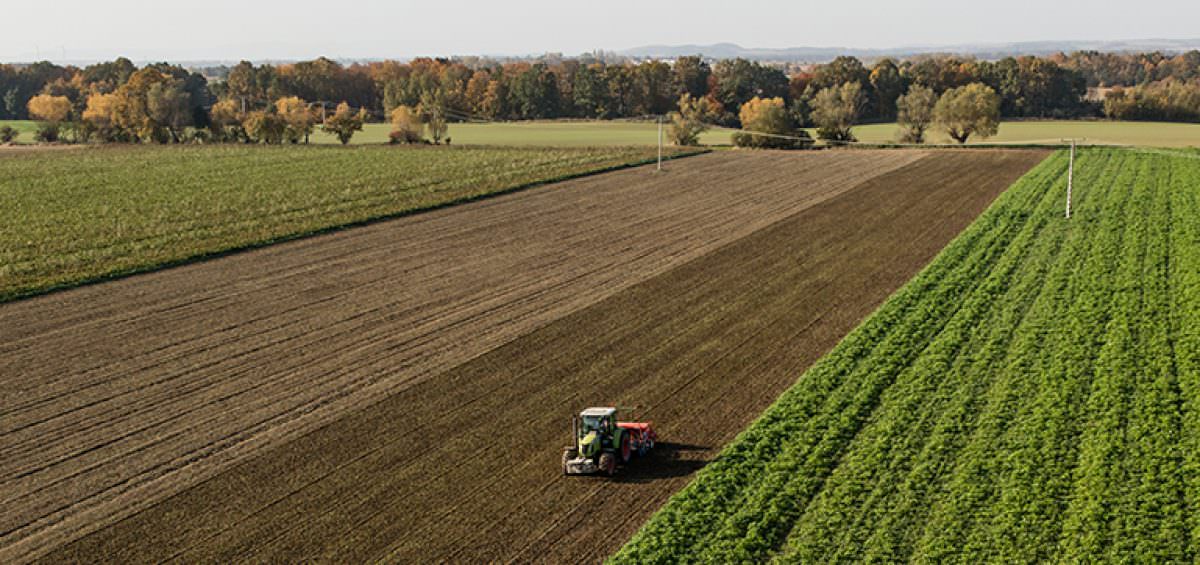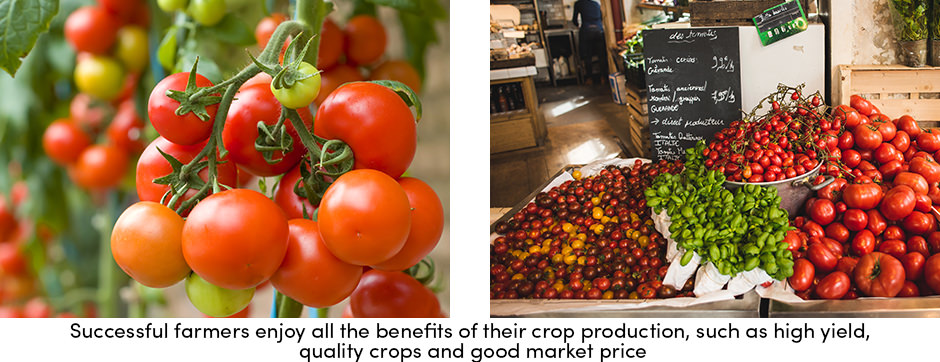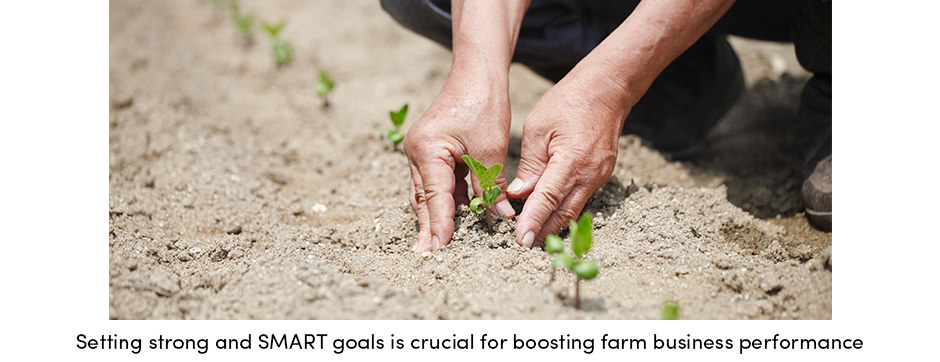Managing a farm without a vision often results in wandering off the course. Having a vision means that a farmer knows how he imagines his business is going to look like at some point in the future. In other words, the vision of a farm business is generally the big picture of everything that a farmer wants to achieve in a certain period.
Having a business vision is one thing. Yet, knowing how to achieve the vision is another thing. For this purpose, farmers set their goals. Business goals serve farmers as guidance towards their vision. Setting the goals can be a true turning point in farm management. Hence, the goals determine the success of the entire farm business.
“Managing a farm without having a vision often results in wandering off the course.”
Having a vision means that a farmer knows how he wants his business to look like at some point in the future
Success Comes to Goal-Oriented Farmers
Crop production is a tough business in which success is not always guaranteed. However, farmers who are persistent in achieving their vision will always find a way to increase a chance of boosting their business performance.
Worldwide, there are many farmers who are more than satisfied with their work results. These farmers enjoy all the benefits of their crop production, such as high yield, quality crops, good market price, ensured customers, and finally a profitable farm business.
The aforementioned farmers have one thing in common; they are goal-oriented. Setting SMART goals is one of the most important qualities of every successful farm manager.
The acronym SMART stands for the following five characteristics:
1. Specific
A specific goal is well-defined and therefore, exactly oriented towards a precise business area. In practice, increasing farm sales is a true example of focused and specific farm management goals. On the other hand, improving business results is definitely not an example of a specific goal. The reason for that is because a term business results can be understood differently (e.g. as productivity which is reflected in yield or profitability which can be reflected in farm sales).
2. Measurable
For a farmer setting the goals which can be measured, means having the possibility to check his progress and compare achieved results with planned. Besides that, measurable goals represent a very good basis for future decision-making. After all, numbers are essential for quality farm management. One example of setting a measurable goal is increasing farm sales by 15%.
3. Assignable (or attainable)
In order to make sure that the goal will be realized, every successful farm manager will determine a person responsible for its realization. This is particularly important for farmers who have a few employees. For instance, if the goal is to increase farm sales by 15%, a farmer can assign his sales manager as the responsible person.
The example of a SMART goal: sales manager will increase farm sales by 15 % until the end of the year
4. Realistic (or relevant)
It’s extremely important that business goals are achievable. In response to that, when setting a goal, a farmer should carefully consider his current business situation. Increasing farm sales by 95% is not so realistic. Yet, increasing farm sales by 15% is a far more realistic goal.
When setting SMART goals, a farmer should define a time frame for its realization
5. Time-bound
The goals must be defined within a time frame. Otherwise, they will fade into the background due to some unexpected events. When a farmer sets a time frame for the realization of his goals, he is motivated to accomplish them. More importantly, the goal with the time frame is more realistic. Increasing farm sales by 15% until the end of the year is a perfect example of a time-framed goal.
“One of the most important qualities of every successful farm manager is setting SMART goals.”
Setting SMART goals is an excellent way to tackle the challenges in farm management. Generally, SMART goals are just a drop in the sea to achieve optimal business performance. Still, it’s definitely a good beginning for every farmer who wants to improve his production and bring about some significant changes.
If you are a farmer who wants to succeed, then set SMART goals. But most importantly, make sure you are on the right track with their realization. Therefore, AGRIVI farm management software can be of great help. So, stop wandering off the course and let AGRIVI guide you as it does thousands of other successful farmers.
Text source: Michigan State University (MSU)









